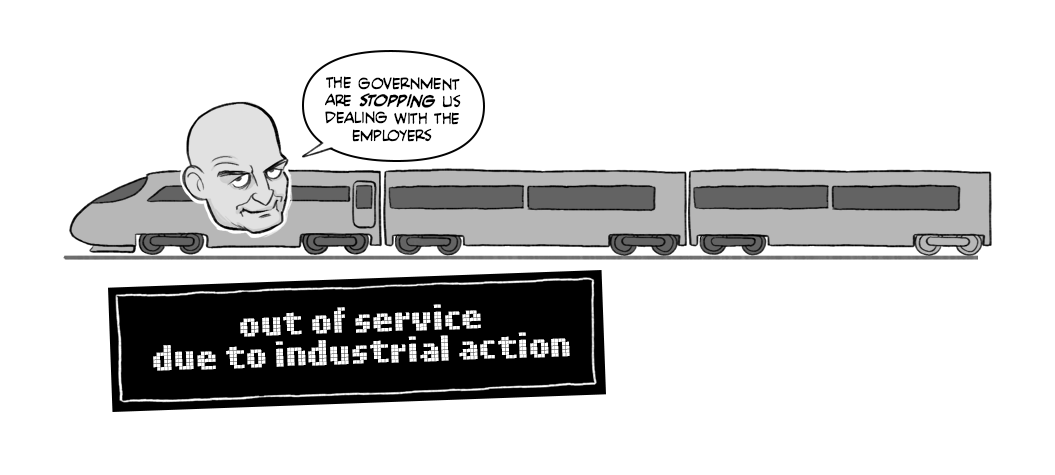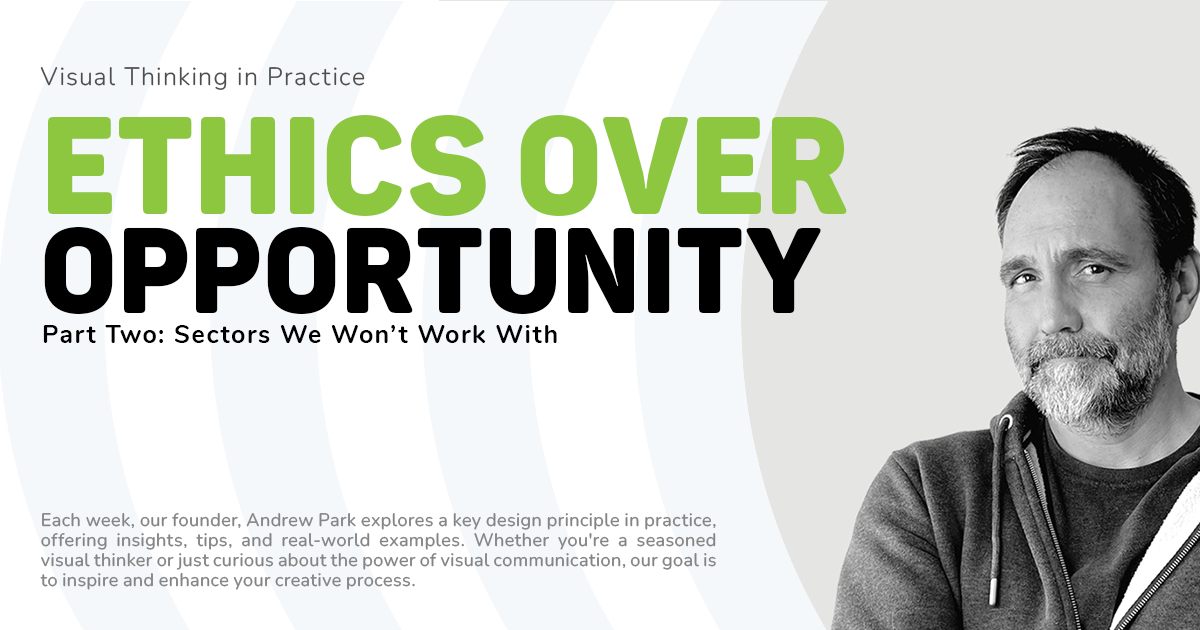The BLT Episode 7: Running Up That Bill
Of course, this week's BLT had to be themed around Glastonbury festival as it kicks off for the first time in 3 years.
Read on for more details about the festival and the other hot topics that made it into the BLT.
Are there stories perfect for the BLT that we’ve missed? Tell us, and find out more about how we work by getting in contact today!

The Wait Is Finally Over
Last year, the festival was due to celebrate its 50th anniversary when Covid-19 cancelled it once again. Those lucky enough to secure a ticket to Glastonbury’s comeback this week were queuing in their thousands, some for 24 hours, to finally get into Worthy Farm.
So far, the only hiccup has been the rail strikes complicating people's plans. With the planned action coinciding with the beginning of Glastonbury, it proved a challenge to get to the rural village of Pilton in Somerset.

Trains Across the UK Grind to A Halt
Members of the Rail, Maritime, and Transport union at Network Rail and 13 train operators are taking part in a three-day walkout over job cuts, conditions, pay, and pensions amid the cost-of-living crisis.
Station staff, cleaners, and signallers are among the tens of thousands taking part in the biggest transit strike in 3 decades, disrupting services across England, Wales, and Scotland.
Discussions between rail bosses and unions fail to resolve, so more rail strikes are thought to be "extremely likely."
No-nonsense Mick Lynch Defends Strikers
Many are singing the praises of the union boss Mick Lynch—pictured in the BLT—for his plain-speaking defence of strike action in TV interviews. Mick kept his cool in a bizarre on-air argument with Piers Morgan and accused Richard Madeley of coming up with "remarkable twaddle."
Watch him take on the media here.

Kate Bush Climbs the Charts Once Again
Another unexpected star this week was pop singer Kate Bush. Her 1985 hit "Running Up That Hill" was featured in “Stranger Things”, a Netflix sci-fi drama series. (Did you spot the faceless, plant-like monster, the Demogorgon in the animation?)
Kate's song is reaching new audiences, hitting the charts 37 years after its release. She's now both the youngest and the oldest woman to have a self-written UK number one song, and many can't get its catchy melody out of their heads.
In Kate's words, "the whole world has gone mad!".

The Record-Breaking Headliners
Kate isn't the only one breaking records. Sir Paul McCartney (AKA Macca) will return to the Glastonbury stage on Saturday night, making him the oldest-ever headliner. Billie Eilish, aged just 20, will break the opposite record as the youngest.

Glastonbury's Humble Roots
We concluded the BLT by returning to the iconic festival's roots. The idea for the festival came about back in 1970 when a dairy farmer, Michael Eavis, was looking for a way to clear his overdraft. It was then only a one-day affair called "The Pilton Pop, Blues & Folk Festival." Tickets were just a quid, and ads promised you a free pint of milk and even an ox roast. 1,500 people showed up, but a dejected Michael still made a loss.
Inflation hits 40-year high
Today a ticket to Glastonbury sets you back £280, and a pint alone is £6. Just one of many signs of inflation, which this week hit a high of 9.1% —the highest rate since the February 1982.
At least Michael Eavis can now afford to pay off his overdraft.
Happy Camping, everyone!
We love using visual thinking and visual storytelling to create connected and layered whiteboard animations like this. We’d love to talk to you about how your message could look as a whiteboard animation, contact us today!

Explainer videos and engaging whiteboard animations, have emerged as powerful tools to convey complex messages with simplicity and creativity. Here, we explore nine innovative ways to integrate explainer animations into your marketing strategy, enhancing your brand's visibility, engagement, and conversion rates.
In the modern workplace, where attention spans are short, and information overload is common, utilizing innovative internal communication strategies is crucial. This article explores creative internal comms ideas, focusing on the power of animated explainer videos and whiteboard animations.
Often the very first books we encounter are picture books, our first introduction to the power of rich visual language. While our books change, the power of this language doesn’t. We’ve reflected on visual language, from picture books to explainer videos and whiteboard animation.
Whether it's making complex ideas feel simple or dry subjects feel engaging, our mission is to democratise knowledge. For over twenty years, we’ve been making this mission a reality, working on whiteboard explainer videos for clients across sectors ranging from education and health to international law and energy.
The best bit of our job is working with clients who have big ideas and complex messages. We’re always ready to make a complicated message feel relatable and understandable or help a visionary get their message out to the masses.
As pioneers of whiteboard animation videos, we’re proud of its ability to make the complex simple and share information far and wide. We want to share its explainer and storytelling superpowers with as many people as possible, but to quote a modern-day classic, ‘with great power comes great responsibility.’ That sometimes means saying ‘no’.
In today’s digital era, explainer videos have become indispensable tools for businesses, educators, and creatives to convey complex ideas in a clear and engaging manner. These videos, whether animated or utilizing techniques like whiteboard animation, captivate audiences and simplify intricate concepts.
We see whiteboard animation as a way of democratising knowledge and sharing the ideas that help us all understand and build a better, fairer world. It is packed with educational and visual storytelling tools that allow us to connect with viewers as we make even the biggest ideas accessible and understandable.
What’s the biggest hype narrative you’ve fallen for recently? Drop it below—no judgment. We’ve all bought something at 11 pm thinking it was genius, only to regret it by morning. (Although the Velcro drain unblocker is the shit!)
The Parker Probe isn’t just a shiny example of what humans can achieve when they stop arguing on X for five minutes. It’s also a reminder that big problems—whether they’re cosmic or corporate—need both boldness and a plan.
When we strip away the layers of imposter syndrome, it often boils down to storytelling—about who we are, what we’ve done, and where we’re headed. The narratives we tell ourselves shape our reality, and reframing those stories can unlock a healthier sense of self-worth.
Facebook and Instagram are going “back to their roots” of free expression. Because, clearly, what the internet desperately needed in 2025 was more rucks.
Watching The Traitors is like observing a high-stakes version of a spider weaving its web. Every accusation, every alliance, every teary-eyed confession pulls on the delicate threads of trust until the whole thing collapses in a heap of suspicion.
Ah, New Year’s resolutions. The annual tradition where we collectively trick ourselves into believing we’re only one heroic declaration away from becoming flawless human beings. This year, this will be the year we shed those bad habits like a moulting snake. Right? Wrong!
If you could pin down the essence of truth, could you draw it? That’s the question that lingered in my mind after speaking with Dan Ariely for my RSA Animate documentary—a project allowing me to reconnect with some of the most compelling thinkers of our time.
I have written a lot about failure. It’s something of a fascination for me. I am in a constantly evolving process with failure. When does failure become a success? Are there any true failures or is it just an endless process?
If you’ve spent any time in creative circles, you’ll know that while education has the potential to transform, we’ve been wielding this so-called "weapon" like a blunt instrument for far too long.
No matter where we find ourselves on the spectrum of human experience, creativity can play a vital role in survival, healing, and hope.
AI could revolutionise the NHS by taking on administrative tasks, giving doctors more time to spend with their patients. However, while this sounds like a dream solution, it comes with challenges. With great power comes great potential for, let’s face it, accidental chaos.
So, here’s the reflective takeaway: in a world of endless scrolling and relentless sameness, being bold is essential, but it’s only the first step. Jaguar has smashed the glass case, but now they need to decide what to do with the diamond.
Let’s face it, presenting isn’t just about showing up with slides and stats. It’s a performance. A dance. A chance to make ideas leap off the screen and stick. But how do you know if you’re nailing it? That’s where the Presentation Pulse Check comes in.
The familiar feels safe, even when it’s clearly sinking. Here’s the harsh truth: in a world that moves as fast as a TikTok trend, being slow to adapt is a recipe for stagnation.
Over-complication isn’t just tedious—it’s the nemesis of efficiency. Enter the KISS principle: “Keep It Simple, Stupid.”
Here’s the thing about getting comfortable – it’s the silent killer of real growth, and I am not talking about bottom-line growth – I’m talking about the type of growth that is far more valuable.
Ah, the Inverted Pyramid—It sounds like a tragic prog rock album you might find at a car boot sale, but it’s a concept that’s as intriguing as it is practical.
Sometimes it’s bloody tempting to focus on fighting today’s fires while forgetting the bigger picture, isn’t it?
Affordance is how something shows you what it can do, like a door handle that makes you want to pull the door open or a button that looks like it should be pressed.
Have you ever been in a meeting where you could just feel your team's energy slipping away? Sometimes meetings drag on, and fresh ideas are as rare as a decent cup of tea, well, in the whole of America!
This peculiar proportion, approximately 1.618, has been lurking in the shadows of human creativity for millennia, like a mathematical James Bond, seducing architects, artists, and designers with its promise of perfection.
Have you ever been in a meeting where you could just feel your team's energy slipping away? Sometimes meetings drag on, and fresh ideas are as rare as a decent cup of tea, well, in the whole of America!

























































